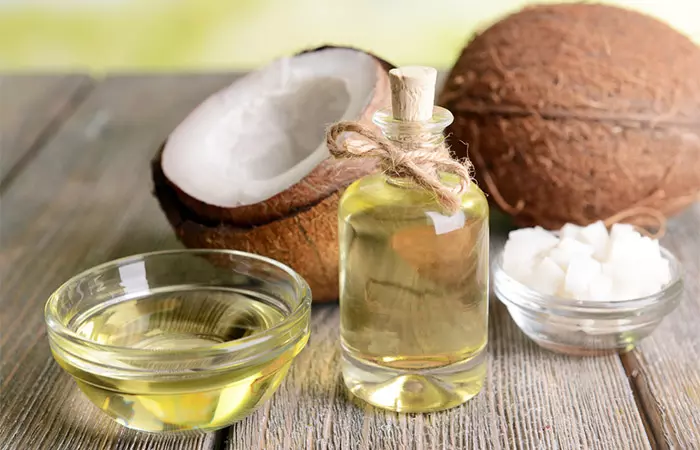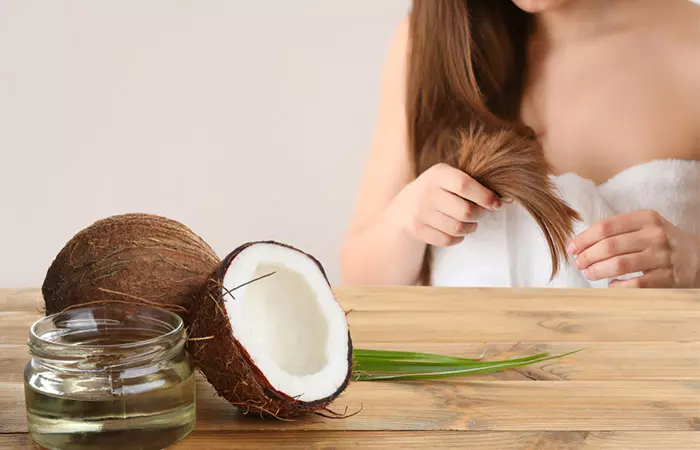While each have their own benefits and usage, sometimes it is hard to decide. For instance, castor oil vs. coconut oil – do you have a preference when it comes to these oils? Do you know what their unique properties are? Depending on your skin type and concerns, you may most likely choose one over the other. But for that you need to be aware of their similarities and differences! Whether you can substitute one for the other or if you can blend and use them together, you must be eager to know. For all the answers and more about how castor oil vs. coconut oil fare against each other, read on!
Castor Oil vs Coconut Oil
So what are the effects of coconut oil vs castor oil? Read to find out!
Castor Oil Properties
Being thick in consistency, castor oil is often misinterpreted for its skin and hair benefits. But to our utter surprise, it is a wonderful natural remedy that promotes thickening and hair growth. In fact, not only for the scalp, it can even be used for the eyebrows and eyelashes to make them thick, long and luscious in an easy and quick manner. Here is how castor oil for hair growth works: These numerous castor oil benefits make it one of the most sought-after oils for skin and hair health.
Coconut Oil Properties
If castor oil is for treating hair issues like hair fall and hair loss, coconut oil is one oil that you would like to add to your regular hair care regime. The oil has properties that protect the hair from environmental conditions and keep it moisturized for a long time. It also helps grow the hair longer and stronger in a convenient manner, making coconut oil for hair growth a popular choice. Candra, a hair blogger, shared her experience of using coconut oil for her. She said, “I did my first coconut oil hair treatment in the summer of 2014. Within three months my hair grew to its longest length. It was incredibly soft and I experienced very little breakage (i).” There are different types of coconut oils that offer specific benefits to improve your health. Read about them below.
Types Of Coconut Oils
Coconut oil comes in several types, each offering distinct benefits.
Virgin coconut oil is extracted from fresh coconut meat without any chemical processing. Thus, it retains its rich aroma and flavor. It is popular in culinary applications and as a moisturizer due to its high content of antioxidants and fatty acids. On the other hand, refined coconut oil undergoes a refining process that removes its coconut scent and flavor. This oil is ideal for cooking at higher temperatures and is often used in baking and frying. Additionally, there is a third type called the fractionated coconut oil. It is a clear, odorless liquid primarily used in skin care and massage oils for its long shelf life and ability to blend well with essential oils.
How To Use Castor Oil For Hair Loss?
Ingredients 1/2 cup castor oil What You Need To Do
How To Use Coconut Oil For Hair Loss?
Ingredients 1/2 cup coconut oil What You Need To Do Is it good to mix castor oil with coconut oil? Yes. Both oils work well when blended in equal proportions. Can you apply castor oil to your hair every day? No. Anecdotal evidence suggests that you limit yourself to using the oil on your hair just once or twice in a week to prevent oil build-up Does castor oil act as a laxative? Yes, anecdotal evidence suggests that castor oil is a natural emollient that may help in treating occasional constipation. Which oil is better for treating acne: castor oil or coconut oil? Both castor oil and coconut oil may help manage acne. Coconut oil and castor oil contain lauric acid and ricinoleic acid respectively. These acids have strong anti-inflammatory properties that may keep acne breakouts in check. Is castor oil or coconut oil better for eyelash growth? Both oils have high fatty acid content that can moisturize your lashes, keep them healthy, and may even promote lash growth. Can castor oil or coconut oil be used as a carrier oil for essential oils, and which one works better? Both oils are carrier oils and can be used to dilute essential oils. Coconut oil is a little lighter and might be more suitable for oily or combination skin types, while castor oil is heavier and better suited for dry skin types. How do castor oil and coconut oil compare in terms of their texture and consistency? Castor oil is thicker in consistency and highly viscous in texture as compared to coconut oil, which is a thin and clear liquid with non-sticky consistency.
Illustration: Castor Oil Vs Coconut Oil - What&039s The Difference?
Unleash the power of coconut oil and castor oil for luxurious hair growth. Explore the secrets of these natural wonders and learn how to achieve luscious locks by watching this video.









![]()

